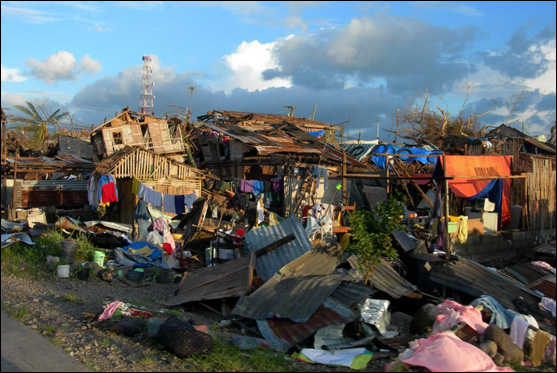
UUA-UUSC fund to aid typhoon victims in Philippines
Relief fund aims to help those most marginalized by disaster.
The typhoon is one of the worst ever to hit the island nation, devastating the city of Tacloban and surrounding areas.
The Philippines is home to 29 UU congregations, which were believed to have been mostly spared damage. The Rev. Tet Gallardo, minister of the Bicutan Unitarian Church in Manila, urged people to donate generously. “We ask you all to send what you can,” she wrote. “I will personally make sure to let your help reach victims even if I have to go there myself to Tacloban.”
As with other UU relief funds, the money is meant to aid the most marginalized. “Our role has always been in the work of long-term recovery and in targeting resources to those who are marginalized and often left out of the relief and recovery efforts,” UUA President Peter Morales wrote on his Facebook page. “A relatively small organization like ours that does not specialize in disaster relief does not have a large role in the first hours and days. That must be done by governments and by large international relief agencies.”
In an appeal, UUSC President William F. Schulz wrote that the post-storm chaos “poses particular threats to the people UUSC is dedicated to helping—the survivors most likely to fall through the cracks of mainstream rescue and relief efforts. Thousands of families are at acute risk because of geography, ethnicity, religion, or other factors that may subject them to unfair or brutal treatment.”
The Rev. Terry Sweetser, the UUA’s vice president for stewardship and development, offered a short prayer of support in the wake of the disaster:
Love and compassion, guide us.
Help us to be spiritually present in the recovery, even when oceans are between us.
Fill our prayers with solace and hope.
Help us support partner relationships with solidarity.
And, inspire within us the true generosity that all tragedies invite, and which this disaster requires.
Amen.
Photograph (above): Entire villages in Leyte province are destroyed (© 2013, Joelle Goire, Leyte province, EU/ECHO). See sidebar for links to related resources.
Comments powered by Disqus






